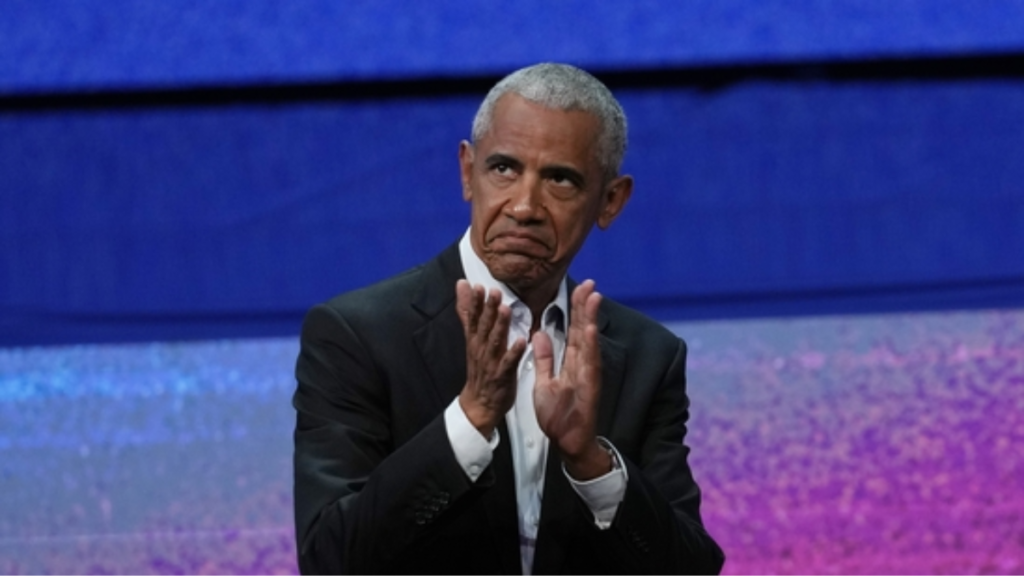Barack Obama, the former U.S. President, publicly applauded Harvard University for refusing to acquiesce to the Trump administration’s insistence that it curb student activism and adopt radical institutional reforms. In a letter shared on social media, Obama praised Harvard for rejecting what he called an “unlawful and ham-handed attempt to stifle academic freedom,” calling on other universities to do the same.
The Trump administration had threatened to cut more than $2.2 billion in federal grants and $60 million in contracts to Harvard unless the university consented to a number of changes. These included the dismantling of diversity, equity, and inclusion (DEI) programs, the rewriting of admissions policies to remove consideration of race, religion, or national origin, banning certain student organizations, and heightening cooperation with immigration officials.
Harvard University strongly rejected these requests, claiming that they interfered with the institution’s First Amendment rights and academic autonomy. In a letter to the administration, Harvard expressed that the suggested accord aimed to “control” the university community and disregarded First Amendment protection.

Barack Obama: Is Harvard Setting a Precedent for Academic Freedom?
Obama’s support of Harvard’s position puts heavy burden into the current debate regarding the freedom of academic institutions. As an alumnae of Harvard Law School and a former constitutional law professor, his endorsement highlights the wider implications of the federal government’s move. Obama highlighted the need to preserve an atmosphere of intellectual exploration, intense debate, and respect for one another in the academy.
The administration explained its freeze on funding as being based on antisemitism concerns on campus, especially after pro-Palestinian student demonstrations. Critics, though, contend that most of the demands made by the administration had little to do with fighting antisemitism and more to do with an encroachment into university management.
Harvard’s move has ignited a wider debate over the use of federal money in higher education and how much control the government can exert over university policy. Other universities, such as Columbia, Princeton, and the University of Pennsylvania, have been under similar pressure, with mixed results.
Legal action is already in progress, with the American Association of University Professors suing the administration’s budget cuts as a violation of procedures under Title VI and an attack on academic freedom.
As events continue to unfold, Harvard’s firm position, supported by Obama, could be a catalyst for other universities to stand up for their autonomy and defend the ideals of academic freedom against political pressure.
Will Barack Obama’s words mobilize other universities to resist?
The solution could become clear soon as universities nationwide balance the price of compliance with the worth of their guiding principles. Already, grumblings of defiance are being heard in faculty clubs and student governments at Stanford, UC Berkeley, and NYU. Some have initiated internal assessments of federal funding reliance, while others are seeking legal avenues to protect themselves from political overreach.
In recent board meetings and faculty gatherings, administrators have invoked Barack Obama’s words as validation and rallying cry. His words are being shared not just as a message of solidarity with Harvard but as a template for moral courage in the academy. The influence of the former president, especially as a constitutional law scholar and Harvard alumnus, has great symbolic power—power enough to encourage others to push back against the narrative being forced by political actors.
Meanwhile, student leaders from universities in Michigan, Wisconsin, and Illinois have begun organizing solidarity marches, online campaigns, and panel discussions centered around the broader implications of government interference in campus governance. For many of them, Barack Obama represents a political figure who understands the power of free academic spaces and is willing to use his voice to protect them.
But the task is daunting. To the smaller colleges and universities with heavier dependence on federal funds, the specter of losing out on millions of grant dollars could prove a cold sobering threat. Not all of them enjoy Harvard’s budgetary autonomy or access to big-city lawyers. To them, Barack Obama’s support might prove to be a rhetorical umbrella rather than an actual protection.
Nevertheless, lawyers argue that Harvard’s dramatic rebuff—coupled with the increasing number of voices, including Barack Obama’s—could pave the way for judicial action. If lawsuits keep piling up, the courts may ultimately be forced to establish clear limits between executive power and institutional independence. The rulings that ensue could forever redefine how federal power is exercised—or abused—in higher education.
In the weeks ahead, everyone will be watching to see how other top institutions react. Will they follow Barack Obama’s lead in defending academic freedom and resisting outside pressure? Or will they quietly shift their policies, opting to stay out of the political limelight?
No matter the course chosen, the precedent is established. Harvard’s position, validated by Barack Obama’s support, has opened a national debate. It is now on other universities to decide if they will step forward to the challenge—or cower in silence.
ALSO READ
US Tariff storm 2024: American Dream Cracks, Global Students Stranded
Odisha University Amendment Act: 5 Bold Reforms Boost Higher Education